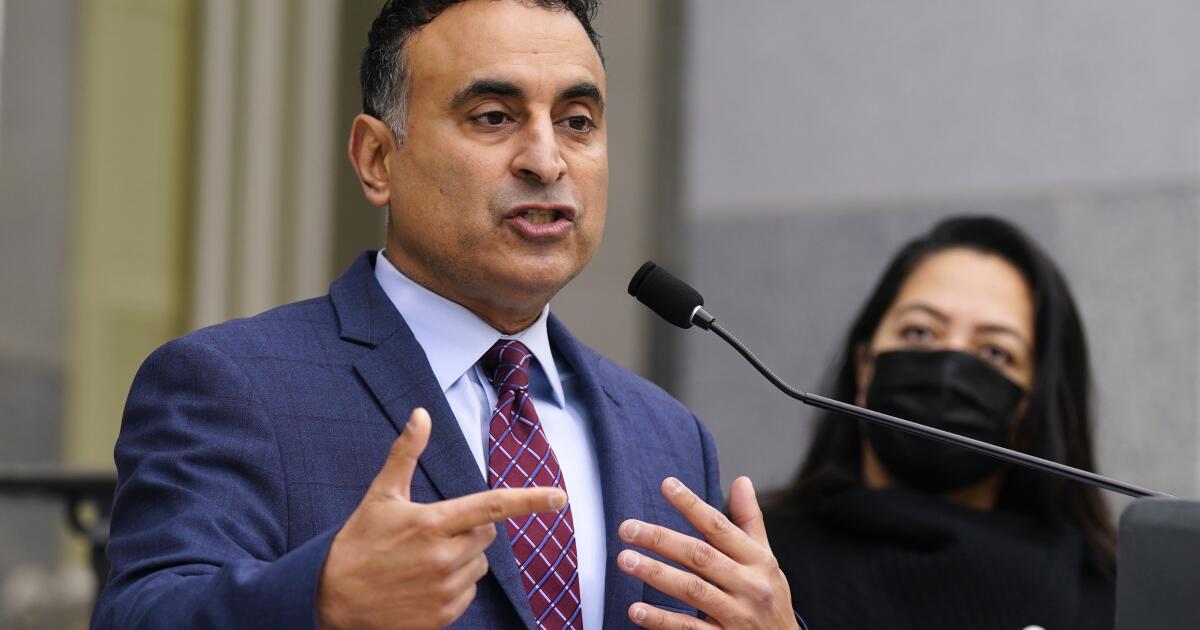A bill to stop law enforcement investigators from questioning the families of people killed by police before revealing their loved one is dead failed when the Democratic-controlled state Senate declined to bring it up for a vote before the legislative year ended on Saturday.
Under Assembly Bill 3021, detectives and prosecutors investigating a police-related death would have been required to tell relatives of the deceased that they have the right to know the status of their loved one, remain silent, retain an attorney and know whether they are being recorded before answering questions.
While the bill passed the Assembly in May, it failed to garner the minimum 21 votes required to clear the Senate amid heavy opposition from police and sheriff’s organizations.
“Law enforcement does have a lot of influence still in this building,” Assemblymember Ash Kalra (D-San José), the bill’s author, said in a brief interview in the Capitol on Saturday night.
“I don’t think they like when they’re told how to conduct their business, but I think there are situations where they need to be told how to conduct their business, and this is one of them,” he said.
Kalra said he hoped to try again next year.
The Los Angeles County Professional Peace Officers Assn. was one of many law enforcement groups that lobbied against the bill.
“Imposing rigid requirements on peace officers, prosecuting attorneys, and investigators could ultimately impede the pursuit of justice and compromise the effectiveness of law enforcement efforts,” the group wrote in a legislative analysis. “Requiring peace officers and prosecutors to disclose specified information before interviewing family members could compromise the confidentiality of ongoing investigations.”
The legislation followed an investigation by the Los Angeles Times and the UC Berkeley Investigative Reporting Program that verified 20 instances of detectives and prosecutors across California using death notifications as opportunities to collect disparaging information about people killed or seriously injured by police.
During these interviews, investigators questioned families about a relative’s drug use, alcoholism, gang involvement and mental health issues, encouraging families to answer the questions before telling them their loved one was dead.
When some of the families later sued, authorities often used information from those interviews to portray the deceased as mentally ill criminals or deadbeat parents while defending their agencies in court. In some cases, that helped lower the cost of damages or settlements paid to families, The Times found.
The cases uncovered by The Times and the Investigative Reporting Program represent just a sample of a routine practice, according to attorneys and advocacy groups specializing in police misconduct.
Bruce Praet, the co-founder of Lexipol, a company that trains and writes policy manuals for police departments, helped popularize the practice by teaching it to officers in one of his webinars. In a 2019 online training, Praet encouraged officers to get to the families of people killed by police “before the dust settles.”
Several national policing experts condemned the practice. Since The Times published its findings, several more people have come forward claiming they, too, experienced the tactic.
After The Times and Reveal from the Center for Investigative Reporting published stories about Praet’s webinar, Lexipol distanced itself from its co-founder, apologized for Praet’s remarks and vowed to more thoroughly review the materials presented in training materials. In April, the investigation won a George Polk Award, one of the most prestigious honors in investigative journalism.
Members of the San José-based police accountability group Silicon Valley De-Bug who partnered with Kalra to draft the bill after several realized they had been subjected to the practice said they would continue fighting for a new version of the bill.
“I’m disappointed that grieving families mean so little to the California Senate,” said Sharon Watkins, whose son, Phillip Watkins, was fatally shot by San José police officers in 2015.
“The possibility of healing community and police relationships will not be possible without this bill.”
California Politics Editor Laurel Rosenhall contributed to this report.
